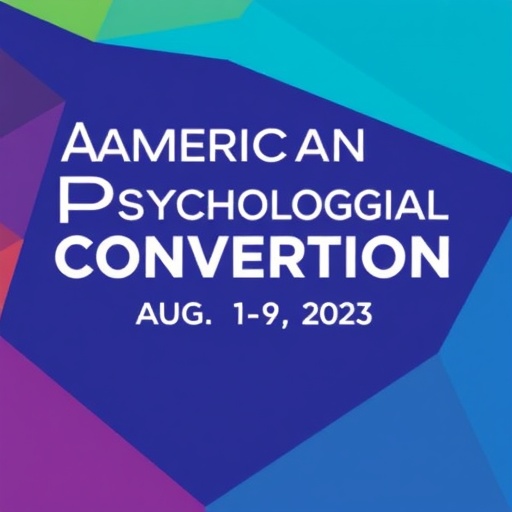The American Psychological Association (APA) is gearing up for its highly anticipated annual convention, APA 2025, scheduled to take place from August 7 to 9 at the Colorado Convention Center in Denver. This convention has long been a cornerstone event for the psychological community, bringing together tens of thousands of researchers, clinicians, educators, and policymakers. The 2025 edition promises to continue this tradition, with an expansive program that includes a diverse range of sessions, keynote lectures, symposia, and poster presentations designed to push the boundaries of psychological science.
This year, APA 2025 aims to bridge cutting-edge research with real-world application at an unprecedented scale. Attendees can expect a robust agenda highlighting emerging trends and innovative treatment modalities across the broad spectrum of psychology. While the event will primarily take place in person, with state-of-the-art facilities and an on-site press room for media professionals, it will also feature a limited virtual component to accommodate global participation and increase accessibility. Selected sessions and major stage events will be livestreamed, with archivable recordings available exclusively for registrants.
One of the most compelling areas of focus at APA 2025 is the exploration of psychedelic compounds as therapeutic agents. Recent advancements in clinical trials have demonstrated promising efficacy of substances such as psilocybin and MDMA in treating conditions like depression, PTSD, and addiction. The convention will address the complex neurobiological mechanisms underpinning these interventions, including their potential to induce neuroplasticity and promote emotional regulation. Discussions will not only involve clinical applications but also ethical considerations and regulatory challenges surrounding the integration of psychedelics into mainstream psychiatric practice.
Addressing the escalating mental health crisis among youth remains a critical priority at APA 2025. The convention will unveil systemic strategies aimed at early identification, intervention, and resilience-building in young populations facing unprecedented stressors in a rapidly changing socio-cultural landscape. These strategies emphasize the intersectionality of biological, psychological, and environmental factors that contribute to mental health disorders in adolescents. There will also be an emphasis on community-based approaches and policy-driven initiatives to enhance accessibility and equity in mental health services.
The intersection of artificial intelligence (AI) and psychology is set to dominate numerous discussions. APA 2025 will explore how AI is reshaping the future of work, education, and autonomous systems. Experts will delve into the cognitive and social implications of human-AI collaboration, the ethical dimensions of algorithmic decision-making, and the transformative potential of AI-driven diagnostics and personalized therapeutic interventions. This deep dive will underscore the challenges and opportunities AI presents in redefining the contours of psychological research and clinical care.
Social media’s pervasive influence on mental health continues to be a topic of intense scrutiny. The convention will spotlight emerging research that dissects how social platforms affect self-perception, emotional regulation, and identity formation, particularly in teenagers engaging in self-diagnosis. These presentations will investigate the neurocognitive underpinnings of digital behavior and the resultant psychosocial outcomes, including anxiety, depression, and social withdrawal. Strategies for mitigating adverse effects through digital literacy and behavioral interventions will also be showcased.
Another growing concern addressed at APA 2025 is the impact of disordered device use on familial relationships, specifically the parent-child bond. Psychologists will present findings on how excessive or maladaptive engagement with digital devices can disrupt traditional attachment patterns, alter communication dynamics, and contribute to behavioral and emotional dysregulation within families. The conference will advance the understanding of these phenomena through both experimental studies and longitudinal data, offering evidence-based recommendations for fostering healthy digital habits.
In a bold and groundbreaking exploration of human sexuality and psychological wellbeing, APA 2025 will feature results from the first large-scale study on the therapeutic potential of kink. This research challenges stigmatizing narratives by examining how consensual BDSM practices may contribute to emotional healing, improved self-awareness, and enhanced interpersonal relationships. The study employs multidisciplinary methodologies, integrating qualitative reports with physiological measures to understand the biopsychosocial mechanisms at play.
The convention’s scientific program is meticulously curated, allowing attendees to navigate the broad terrain of psychological disciplines efficiently. An online, searchable database of the full program is available, providing accessibility to the latest developments across a wide array of topics. This digital tool supports advanced filtering and personalized scheduling, empowering practitioners and researchers to tailor their experience to their specific interests and areas of expertise.
Media professionals covering APA 2025 will find notable support through dedicated press facilities, including workspaces equipped with high-speed internet and media resources. Complimentary registration is offered to credentialed reporters, underscoring the APA’s commitment to broad dissemination of psychological science. The availability of both in-person and virtual attendance options signals the association’s forward-thinking approach to networking and knowledge exchange in a post-pandemic era.
Beyond the detailed scientific content, APA 2025 represents a vibrant forum for fostering interdisciplinary collaboration. It attracts a diverse audience, including government officials, educators, mental health advocates, and technologists, all united by the goal of leveraging psychological science to improve societal wellbeing. As such, the convention remains pivotal in shaping mental health policies, therapeutic standards, and educational frameworks nationwide and beyond.
In summary, APA 2025 stands as a milestone event that encapsulates the dynamic evolution of psychological science. Its comprehensive program reflects urgent societal challenges such as youth mental health, the integration of advanced technologies, and novel therapeutic pathways. The convention’s blend of rigorous research, clinical innovation, and public engagement ensures it will captivate not only the professional community but also a broader audience invested in the future of mental health and human potential.
Subject of Research: Not specified
Article Title: Not specified
News Publication Date: Not specified
Web References: Not specified
References: Not specified
Image Credits: Not specified
Keywords: Psychological science, Mental health, Psychedelic therapy, Youth mental health crisis, Artificial intelligence, Social media impact, Parent-child relationship, Kink therapy




